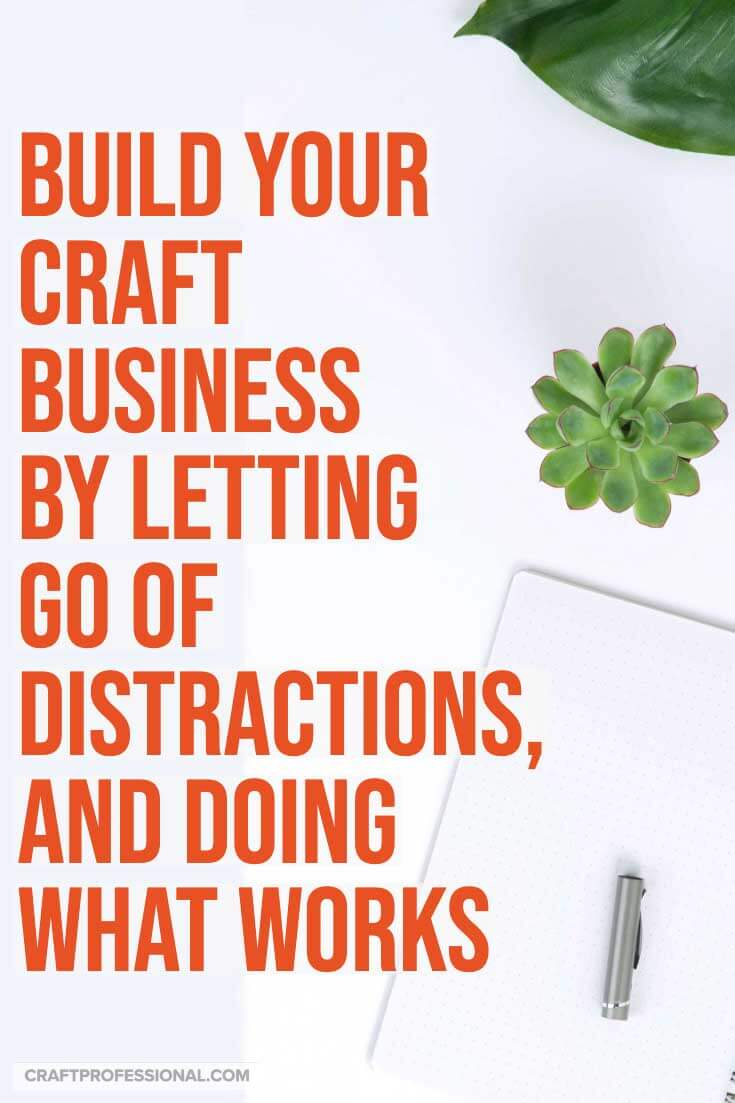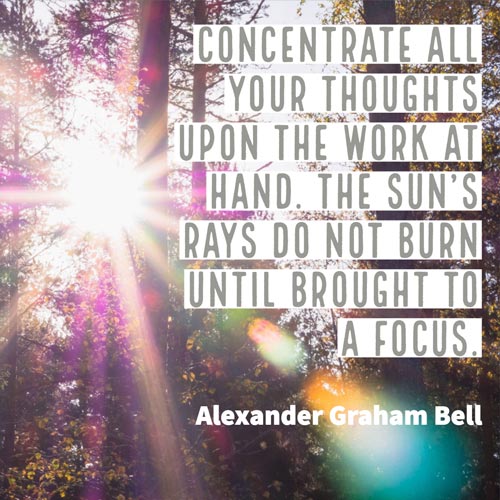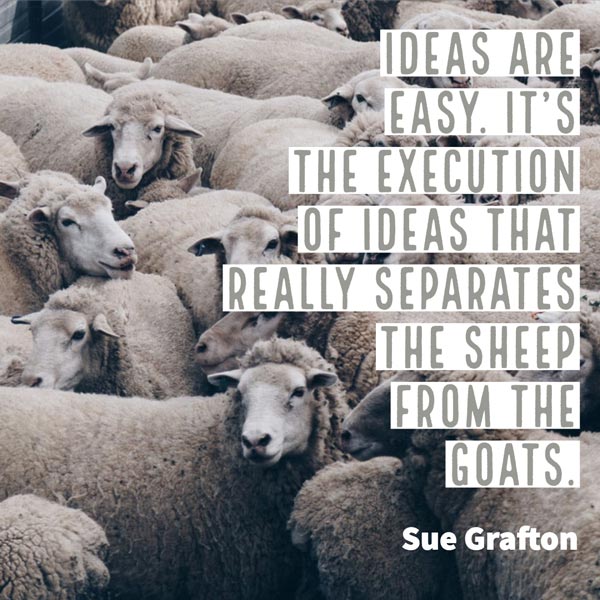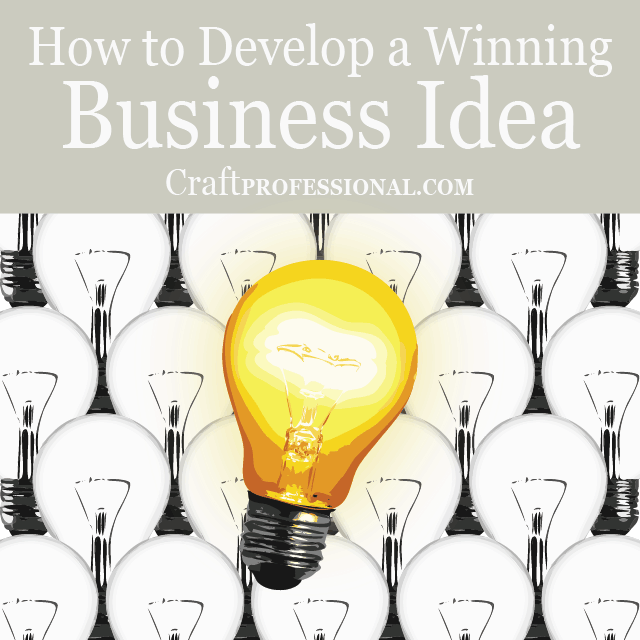Do Effective Things Well
Too many ideas, not enough time. That's how I often feel. I'll admit, it's one of my biggest weaknesses when it comes to running a business. Taming my tendency to jump from one project to another is my goal for the coming year.
I've decided that learning to concentrate on what's important and say no to what isn't important is my focus for this year.

I'm usually skeptical about making New Year's resolutions.
I see all those extra people at my gym in January, and I know most of them will be gone by February. I'm not judging. Full of hope, excitement, and good intentions, I've made plenty of my own resolutions that fizzled out before Groundhog Day.
But I'm convinced that making this change would have big, positive repercussions, so I'm committing to it here to give myself more accountability. Instead of thinking of it as a resolution, I'm going to call it my motto for the year - Do Effective Things Well.
I also suspect I'm not alone with this problem, so I thought I'd share my plans to focus better on what's important.
Here's What Gets in the Way of Accomplishing Things
I'm great at the big picture. Coming up with ideas, researching, planning, working on the initial stages of implementing a project - I'm all over that kind of work.
But when it gets down to implementing the nitty-gritty details, somewhere along the line I lose focus. Something else always comes along that's new and exciting or seems extremely important in the moment, and I allow that new thing to steal my time and focus.
In fact, I've just reorganized my computer files, and in the reorganization, I've found three business-related projects all in various states of completion. All three projects are useful. All three projects have good potential to help me achieve my own business goals. But they sit there, half finished, because I became side-tracked by something else that seemed more important at the time.
It's the digital equivalent of having a closet full of half-finished craft projects. Sadly, I also have a closet like that, but that's another story for another time.
It's not that I didn't do a lot of work over the past year, but I did allow myself to be side-tracked by projects that were less important and less impactful.
Updated for 2018
I'm re-reading this article a few years after it was first written. I wish I had dated it when I first wrote the article, but I'd say it was around 2015 because that's when I was using Evernote to try to manage all of the balls I have in the air.
I'm amazed at how I still have to actively work against this tendency to be excited by the big picture of a project and lose steam in the details. The bigger a project is, and the longer it will take to complete, the less likely it will be finished.
I am happy to see that I've made progress with this challenge.
After a lot of experimenting, I found a method that works for me and keeps me on track. I still have to fight against this tendency to love the big picture but not be a big fan of the details. But as long as I consistently use the planning and organizational strategies I've put in place, I'm far better at staying focused on what matters than I was when I originally wrote this piece.
Here's The Plan to Overcome Distraction and Focus on What's Important
This year I resolve to focus on doing effective things well.
For me, that means:

- Seriously assessing the potential return on investment before committing time to something.
- Not letting myself fall in love with my ideas without assessing them first.
- Saying no to projects that demand resources (especially time resources) but don't have a strong potential to move my business goals forward.
- Getting help where I need to and finding a balance between saving money and saving time
- Focus! Once I determine something is worth an investment of my time, I will finish what I start in a timely manner and before taking on a new project.
As I see it, there are two major components to this resolution:
- Deciding what is most important
- Sticking to it
To decide what is most important and stick to it, I've created a business plan. It's not the type of formal business plan you'd write for investors. Instead, it's a personalized plan that shows me what I need to know to stay on track.
- I've listed my most important goals, outlined the steps necessary to achieve those goals, and created a timeline to show when major stages of a project should be complete, so I'll know if I'm on track or not.
- Although I have big-picture goals for the whole year, I've only made a detailed plan for the next five months. That way, I can assess where the plan has taken me in five months and decide the next steps when I get there.
- I've also been very careful to avoid over-planning. I'm usually over-optimistic about how much can get done in a given time frame, and that can thwart the best of plans. So, I have tried my best to avoid packing each month with more than I can realistically complete.
- I'm trying out Evernote for managing all of my information. Things have a way of "disappearing" on my computer if I need to shift my attention somewhere else for a while, so I need one orderly place to keep track of projects and progress. A lot of people say they love Evernote, so I thought I'd give it a try. So far, it's working well, but I haven't used it long enough to say for sure.
I'm sure my plan doesn't sound terribly revolutionary for those of you who are better at staying focused, but keeping things simple was part of the plan. I didn't want some complex time management system that was, itself, a chore to manage. I've tried a lot of those schemes, and none have ever worked for me.
Update for 2018
It's amazing to read this plan and see what has changed and what has stayed the same, as well as what worked and what didn't.
I Don't Let Myself Fall in Love With My Ideas Anymore
I'm happy to say that I'm much better at not chasing every idea that comes into my head. In the last few years I've come to internalize the fact that ideas aren't all that meaningful without great implementation. And my time for great implementation is limited, so I need to choose my projects well.
Now, when a new idea or opportunity presents itself, my first thoughts are about determining how long it would take to implement that idea. It's from there that I decide if it's even worth considering.
I don't fall in love with my ideas so easily anymore, and that is immensely helpful in keeping focus.
I've Embraced Quarterly (13 Week) Projects
Given that, for me, the longer a project takes, the less likely it will get done, I've discovered that tackling a series of 13 week-long projects works well for me. 13 weeks is long enough to complete something fairly substantial but short enough that it feels manageable, and the end remains in sight.
Each year we get 4 blocks of 13 weeks, which provide time to complete 4 fairly substantial projects in a year. Looking at my goals in this way really helps me to avoid over-planning.
I just made a goals list for 2019. There are 11 items on it. I know this initial list is completely unreasonable and full of wishful thinking. But I also know that if I group those goals into blocks of 4 projects that could each be completed in 13 weeks, and eliminate the less essential ones, I'll get a lot done next year.
I Still Have a Tendency to Over-Plan Day to Day
I still have to remind myself that just because I want to accomplish a lot in a day doesn't mean I'm able to do it. Keeping track, in writing, of the work I actually complete from week to week has made me much more aware of how long I need to do certain tasks, but it hasn't completely eliminated my tendency to be over-optimistic from time to time.
I've Discovered the Joys of Tracking Projects on Paper
Back in 2015, I was trying to use Evernote to manage all of my work. I had observed that things have a way of disappearing on my computer. I thought that the big, fancy system that took quite a lot of time to implement would prevent that.
Guess what!
Things on my computer still have a tendency to disappear into a black hole.
Tracking with Evernote failed miserably for me. I'm not condemning Evernote. A lot of people absolutely love it. It's a great tool for the right kind of person.
It just wasn't the right tool for me.
I realized that no matter what organizational system I used, if it was digital, it probably wasn't going to work for me. That's when I switched to using a paper planner.
As soon as I accepted that I do better tracking on paper, my planning improved immensely.
I've been using the same simple paper planner for two years now, and it has made all the difference in the world in helping me stay focused to do effective things well.
Things to Remember to Stay on Track

Time is a commodity
As a small business owner, you only have so much time to invest in your business. Time isn't free. It must be spent wisely. You don't want to waste time pursuing business opportunities that aren't right for you.
Just because others do it doesn't mean you have to do it.
What's right for one business isn't right for every business. Just because other craft business owners are pursuing a certain avenue doesn't automatically mean it's right for your business. Assess the value of opportunities and the likely time and money cost before diving in.
Just because you can do something doesn't mean you should.
Not every project is worth your time. Jumping on every shiny project that comes your way will inevitably get in the way of completing the most impactful projects. This year I will ensure the things I do have the best return on investment, and I'm hoping it will allow me to do fewer thing but accomplish more.
UPDATED FOR 2018
Be willing to adjust your plans as you go.
Looking back on my goals and plans from three years ago, I'm pleased to see the progress I've made, but I can also, in hindsight, see where the initial plan needed improvement to fit better with my working style.
If your strategies aren't working for you, it doesn't mean you're doomed to fail or you'll never achieve your goals. It may just mean you haven't found the right strategies that work for you. You need to ask yourself what's not working and how you can change that element of your plan.





New! Comments
Have your say about what you just read! Leave me a comment in the box below.